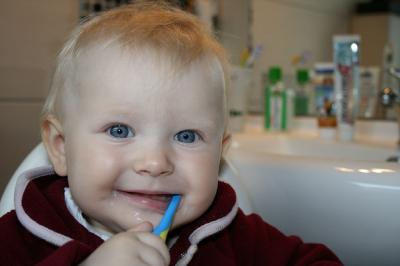A Guide To Dental Health
 People begin to learn about dental health from a very young age, when teeth first begin to show up. But in spite of such early awareness, many people fail to maintain good dental health throughout their adult life.
People begin to learn about dental health from a very young age, when teeth first begin to show up. But in spite of such early awareness, many people fail to maintain good dental health throughout their adult life.
Good dental health comprises brushing and efficient cleaning of the interproximal surfaces of your teeth every day, maintaining a good balance diet, which controls frequent consumption of sugary food ......
In addition, people supplement their dental care with the use of products like mouthwash or advanced mouth care systems. You should keep it in mind that the lack of adequate dental care practices and adequate control of frequent intake of sugary foods will result in development of cavities in teeth and gum disease. Lack of regular visit to a dental professional will result in any dental health problems not being detected early enough for effective interventions.
It is generally advised that you use a toothbrush with softer bristles so as to protect your gums and some people prefer power brush systems. Both should be used with adequate amounts of fluoride containing toothpaste.
The detergent in the toothpaste helps to break up plaque making it easier to be wiped away from the tooth surfaces with brushing action.
Powered vs Manual
Depends on who you ask! Very basically, if you use either well then both will do the job.
On balance, for most people, powered will be easier to use than manual. Besides, some powered brushes have smaller heads, which means they can reach places where other brushes may not.
Don’t hang on to your brush for too long.
Trust me it’s not a family heirloom!!
Try and change it once every 4 - 6 weeks. New brush means you don’t have to use too much pressure. This is better for your gums and will wear your teeth less.
It takes more than just brushing to keep your teeth in good health. Some other steps need to be taken to ensure that people do not lose their teeth as they become old.
To begin with, you should understand your own oral health needs, as your oral health depends on your diet, the type and amount of saliva in your mouth, your overall health and your oral hygiene routine. Try to follow a daily routine in consultation with your dentist.
As fluoride strengthens developing teeth in kids and is in prevention of decay in adults, toothpastes and mouthwashes containing fluoride should be used. You should brush at least twice a day after meal times.
Up to 35% of the total surfaces where bacteria can harm teeth are in between teeth. The usual way that these surfaces are maintained is by using floss. However, as the volume of the space between our teeth increases with age, you should consider supplementing this with the use of interproximal brushes.
Brushing and flossing will remove plaque, a complex mass of bacteria that constantly forms on your teeth. This will limit the amount of harmful material which the bacteria can produce after you consume food.
Limit the frequency and consumption of snacks and follow a balanced diet plan. Tobacco and alcohol in any form will enhance the risk of oral cancer and cause stains on your teeth. Visit your dentist regularly and get your mouth examined for signs of dental as well as oral health problems.
